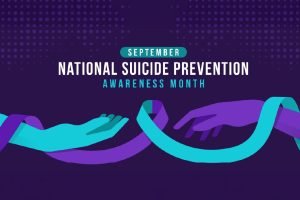Trauma is a deeply personal and life-altering experience. Whether it stems from a single catastrophic event or a series of distressing moments, its impact goes far beyond the surface.
As renowned trauma expert Dr. Gabor Maté explains, “Trauma is not what happens to you, but what happens inside you as a result of what happened to you.”
This profound insight shifts the focus from external events to the internal struggles that trauma creates within us – and reminds us that healing requires addressing the emotional wounds left behind.
If you’re on a journey of recovery after a traumatic experience, know that healing is possible.
Below, we’ll explore practical ways to move forward, rebuild, and rediscover yourself, while also introducing resources which offer unique and effective support.
So let’s start with the steps for your healing journey.
1. Don’t Isolate – Find Strength in Connection
Trauma often makes us feel alone in our pain, but connecting with others can be a lifeline. Reach out to friends, family, or trusted individuals who can listen without judgment.
Maté emphasizes the importance of relationships in healing, noting that “safety is not the absence of threat; it is the presence of connection.”
Surround yourself with people who make you feel safe and seen.
2. Seek Professional Help
Unresolved trauma can manifest as sadness, fear, or even physical illness.
If your emotions feel overwhelming or interfere with daily life, a trauma-informed mental health professional can guide you toward recovery.
Therapy provides a compassionate space to process pain and develop tools for emotional regulation.
3. Face the Trauma
Though it’s tempting to bury painful memories, healing requires confronting them.
As Maté explains, trauma disconnects us from our authentic selves.
Facing your experiences allows you to rebuild that connection, learn to manage triggers, and regain control over your emotions.
Journaling, mindfulness, or guided therapies like EMDR can help you navigate this process safely.
4. Avoid Alcohol and Drugs
Many people turn to substances to numb the pain of trauma. Maté, who has studied addiction extensively, describes it as a coping mechanism born from unhealed emotional wounds.
While a drink or drug may offer temporary relief, it delays the deeper healing you need.
Instead, focus on healthier outlets like meditation, physical activity, or creative expression to manage stress and discomfort.
5. Listen to Your Body
Trauma often disconnects us from our physical selves. Reconnecting with your body through rest, nourishing meals, or calming activities like yoga can ground you and promote healing.
The whole mind-body connection is very important. The body holds the score of trauma – and that healing requires tuning in to what it needs.
6. Join a Support Group
Healing isn’t a journey you have to take alone. Support groups offer a safe space to share your experiences with others who understand what you’re going through.
TAR Anon™ is one such group designed specifically for survivors of toxic, abusive relationships and trauma.
This international fellowship provides a neuro-safe, trauma-informed environment to help survivors rediscover self-love, develop emotional regulation skills, and find a community of support.
Powered by STAR Network™, TAR Anon’s program includes research-based steps, trained TAR Mentors, and online meetings. Their guiding principle is to help survivors come “out of the fog and into the light” of recovery.
For anyone struggling with the lasting effects of trauma, TAR Anon is a vital resource that offers hope, healing, and empowerment.
7. Meditation and Mindfulness as a Daily Healing Practice
Mindfulness and meditation help calm the storm of emotions trauma can create.
Even if you’re unfamiliar with meditation, turning inward to ease stress can help. Deep breathing or focusing on your exhale can help ease your mind and relax you.
Focus your attention on breathing or on parts of your body while you meditate. That can keep your brain from thinking about your stress.
You may want to repeat a mantra or pray. Mindfulness, tai chi, and yoga are also great ways to find your calm.
8. Celebrate Life
Healing isn’t just about addressing pain – it’s also about reclaiming joy.
Allow yourself to celebrate life’s small moments, whether it’s sharing laughter with friends, savoring a favorite meal, or enjoying a sunny day.
This act of joy is not selfish; it’s essential to recovery.
9. Find Meaning in Your Journey
Maté often speaks about the power of transformation through trauma.
While the experience itself is deeply painful, the journey of healing can reveal inner strength, resilience, and new purpose.
Reflect on what matters most to you, whether it’s deepening relationships, contributing to your community, or pursuing personal goals.
By focusing on what truly matters, you can create a life that feels aligned with your authentic self.
Explore TAR Anon for Support
Recovery from trauma, especially toxic and abusive relationships, often requires a community that understands your pain and offers tools for healing.
TAR Anon provides such a space, helping survivors rebuild their lives in a compassionate, non-judgmental environment.
Their program fosters self-awareness, emotional regulation, and essential self-love, with the support of trained mentors and a fellowship of like-minded individuals.
This free online group provides a unique blend of support, research-based recovery methods, and the encouragement you need to move forward.
Keep in mind that healing from trauma is a process, not a quick fix.
As Gabor Maté reminds us, trauma reshapes our inner world, but it doesn’t have to define us.
By taking small steps every day – seeking support, connecting with others, and practicing self-care – you can reclaim your life and rediscover your authentic self.
If you’re ready to take the next step in your healing journey, join a TAR Anon meeting.







